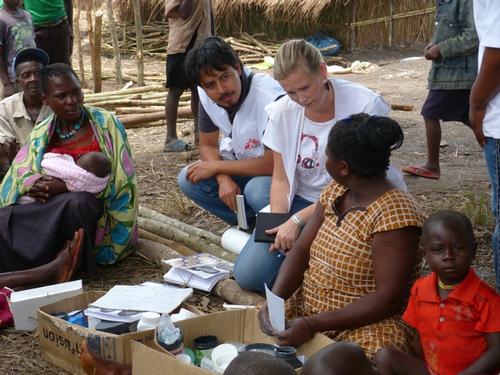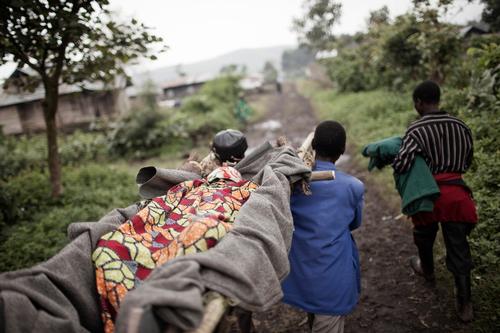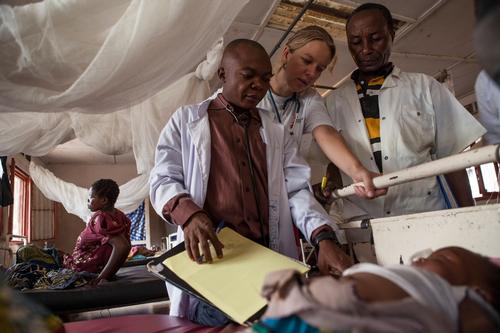Bunia/Geneva - Violent clashes in South Irumu, Orientale province, in eastern Democratic Republic of Congo, have forced more than 100,000 people to flee their homes, according to Médecins Sans Frontières (MSF).
MSF calls on all parties to the conflict to respect civilians and healthcare facilities. The medical organization also reports that the level of humanitarian aid is insufficient and calls further for additional resources to meet people’s most urgent needs.
Government forces (FARDC) and the Front for the Patriotic Resistance of Ituri Militia (FRPI) have been fighting for control of the territory since 23 August, but the violence has intensified over the past three days, and ordinary people are living in terror of gunfire and systematic looting.
“People have simply been abandoned,” says Fred Meylan, MSF’s emergency coordinator in Geti, adding that the level of humanitarian aid is vastly inadequate to meet the urgent needs of people who have been forced from their homes.
In September, intense fighting took place within Geti state’s medical centre, which receives MSF support, resulting in the death of a Ministry of Health nurse and wounding three patients. Most of the area’s medical facilities have been looted and destroyed in recent weeks.

“This situation is unacceptable,” Meylan says. “Up to now, we have managed to maintain lifesaving emergency services and treat the wounded, but the parties to the conflict must respect the integrity of healthcare facilities." MSF has had to postpone a planned measles vaccination campaign and reduce teams following clashes close to its base in Geti.
Since the crisis began, MSF has held more than 17,000 medical consultations in Geti and Munobi, performed 43 operations on wounded patients and 17 cesarean deliveries, and admitted 165 patients for emergency treatment and intensive care. In addition to the medical assistance provided in Geti, MSF’s teams are treating and distributing more than 100,000 litres of water per day to people who are living in makeshift shelters without drinking water. MSF has built more than 350 latrines to prevent the risk of epidemics associated with the terrible sanitary conditions.
The humanitarian response remains largely inadequate, particularly in the stable areas around Lagabo, Soke, Songolo and Malo, where the first displaced persons began arriving in late August, having left everything – houses, belongings, fields, and harvest – behind. “They are struggling every day to meet their most basic needs” Meylan says. “Today, most of them no longer have access to medical care. This is particularly worrisome as part of the region has been experiencing a measles epidemic for several months.”
“Humanitarian assistance must be strengthened in the areas that are not affected by the clashes,” he says. “History is repeating itself. Once again, civilians are the first victims of the fighting.”
MSF has been working in Geti since 2006, when it provided assistance to people who had fled fighting between soldiers and militias. The organization has had a continuous presence there since 2008 through its support to the health centre and the Geti general referral hospital, working with health authorities.




